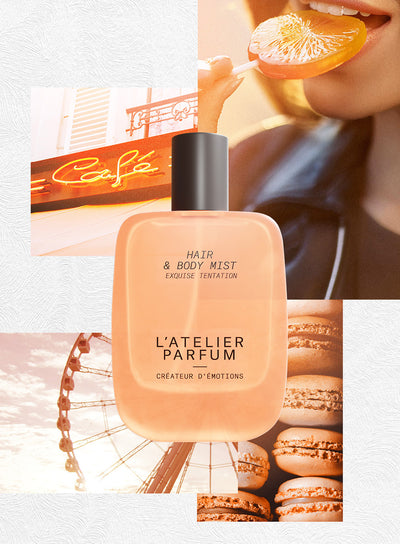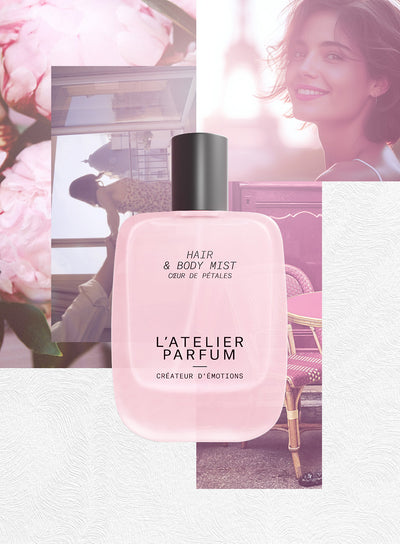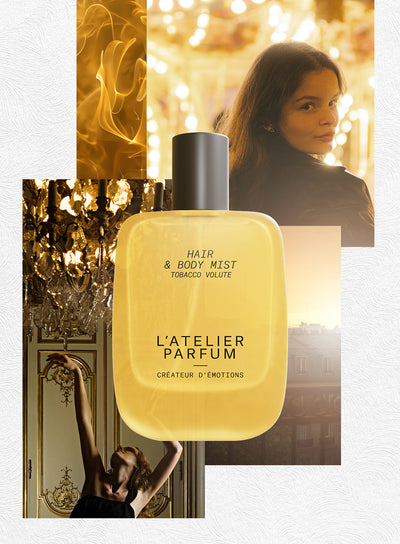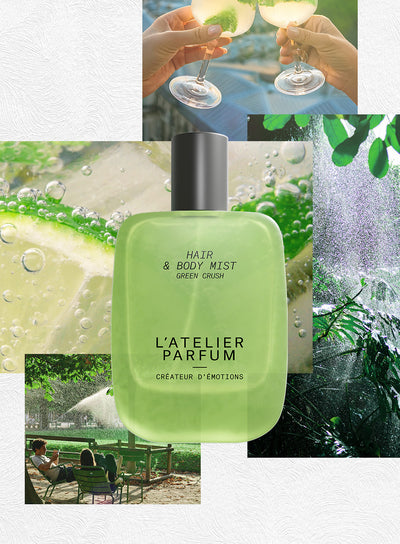- Histoire, Terre de Parfum
- L'Atelier Parfum
Land of Perfume: Ancient Greece
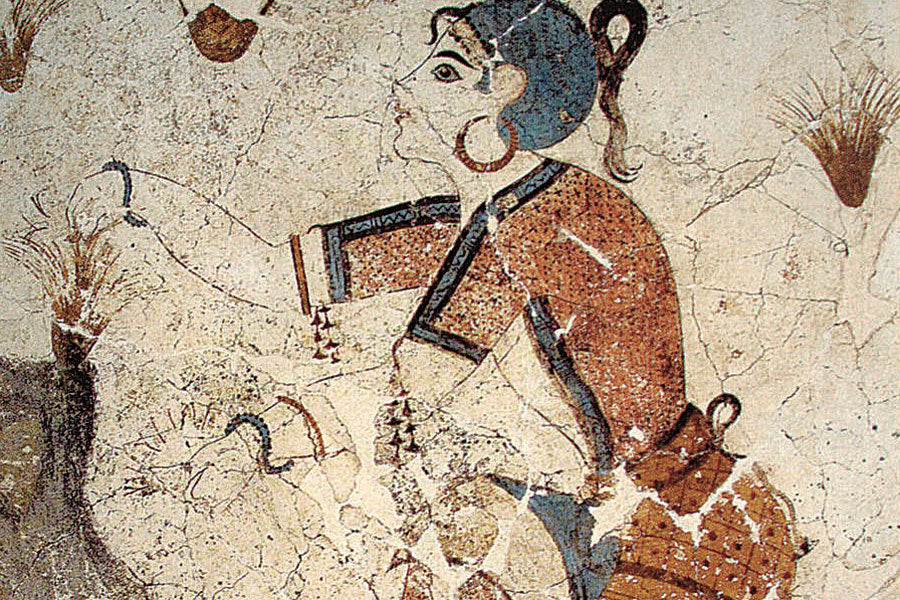
An ancestral art, inherited and transformed
In Ancient Greece, perfume was much more than a luxury—it was a way of life, a sacred language, an offering to life and to the gods. Inheriting expertise from the Egyptians via maritime exchanges, the Greeks developed a refined perfumery with many uses. As early as the 15th century BCE, perfumed oils, ointments, and incense were integrated into daily routines, religious rituals, and healing practices.
Perfume at the heart of life’s milestones
Fragrance marked the most important moments in Greek life: it welcomed birth, sanctified marriage, and honored death. At birth, babies were perfumed as a symbol of welcome to the world. During weddings, aromatic ointments celebrated sacred unions. At death, bodies were wrapped in scented shrouds and buried with flasks of perfume to honor the deceased and ease their passage to the afterlife. Roses, lilies, violets, myrrh, and incense represented this yearning for eternity.
A perfumery rich in ingredients
The Greeks innovated in scent creation. They developed floral balms made with iris, rose, marjoram, and lily. Raw materials were imported from afar: incense and myrrh from Syria and Egypt, cinnamon from the East, saffron from Crete. During the conquests of Alexander the Great, new trade routes opened through Asia, bringing musk and ambergris into Greek fragrance palettes. A true “olfactory revolution” swept through the Western world.
Beauty, hygiene, and seduction in everyday life
In Greek society, perfume was an essential gesture of elegance and self-care. After bathing, both women and men massaged their skin with scented oils. In the gynaeceum (women’s quarters), women devoted time to applying makeup, styling their hair, and perfuming themselves. Men used fragrance to seduce and signal their status. Even warriors coated themselves in perfumed oils to shield their skin from the sun and mask the odors of war—some even treated wounds with fragrant balms.
Fragrant baths as places of life and exchange
The Greeks had a deep love for public baths, which served as both hygienic and social hubs. These spaces, often adorned with flower garlands, were filled with natural scents. People visited not just to cleanse, but to socialize and enjoy massages. At banquets, guests were welcomed with perfumed foot baths, aromatic oils, or even flower-infused wines—an act of both hospitality and refinement.
Sacred plants and healing power
Beyond ritual and beauty, perfume was also medicinal. Hippocrates, the father of medicine, recommended sage fumigations and saffron vapors to treat the body and soothe the spirit. For the Greeks, aromatic plants were divine in origin—manifestations of sacred presence. Fragrance was not only symbolic but curative, a natural remedy for both soul and body.
Ancient Greek perfumery uniquely combined the spiritual, the sensory, and the medicinal. At L’Atelier Parfum, this olfactory legacy lives on—each scent we create is infused with heritage, emotion, and ritual.
Sources:
Les parfums antiques dans le bassin méditrranéen
Parfums divins chez les Grecs
La Grèce Antique
In Ancient Greece, perfume was much more than a luxury—it was a way of life, a sacred language, an offering to life and to the gods. Inheriting expertise from the Egyptians via maritime exchanges, the Greeks developed a refined perfumery with many uses. As early as the 15th century BCE, perfumed oils, ointments, and incense were integrated into daily routines, religious rituals, and healing practices.
Perfume at the heart of life’s milestones
Fragrance marked the most important moments in Greek life: it welcomed birth, sanctified marriage, and honored death. At birth, babies were perfumed as a symbol of welcome to the world. During weddings, aromatic ointments celebrated sacred unions. At death, bodies were wrapped in scented shrouds and buried with flasks of perfume to honor the deceased and ease their passage to the afterlife. Roses, lilies, violets, myrrh, and incense represented this yearning for eternity.
A perfumery rich in ingredients
The Greeks innovated in scent creation. They developed floral balms made with iris, rose, marjoram, and lily. Raw materials were imported from afar: incense and myrrh from Syria and Egypt, cinnamon from the East, saffron from Crete. During the conquests of Alexander the Great, new trade routes opened through Asia, bringing musk and ambergris into Greek fragrance palettes. A true “olfactory revolution” swept through the Western world.
Beauty, hygiene, and seduction in everyday life
In Greek society, perfume was an essential gesture of elegance and self-care. After bathing, both women and men massaged their skin with scented oils. In the gynaeceum (women’s quarters), women devoted time to applying makeup, styling their hair, and perfuming themselves. Men used fragrance to seduce and signal their status. Even warriors coated themselves in perfumed oils to shield their skin from the sun and mask the odors of war—some even treated wounds with fragrant balms.
Fragrant baths as places of life and exchange
The Greeks had a deep love for public baths, which served as both hygienic and social hubs. These spaces, often adorned with flower garlands, were filled with natural scents. People visited not just to cleanse, but to socialize and enjoy massages. At banquets, guests were welcomed with perfumed foot baths, aromatic oils, or even flower-infused wines—an act of both hospitality and refinement.
Sacred plants and healing power
Beyond ritual and beauty, perfume was also medicinal. Hippocrates, the father of medicine, recommended sage fumigations and saffron vapors to treat the body and soothe the spirit. For the Greeks, aromatic plants were divine in origin—manifestations of sacred presence. Fragrance was not only symbolic but curative, a natural remedy for both soul and body.
Ancient Greek perfumery uniquely combined the spiritual, the sensory, and the medicinal. At L’Atelier Parfum, this olfactory legacy lives on—each scent we create is infused with heritage, emotion, and ritual.
Sources:
Les parfums antiques dans le bassin méditrranéen
Parfums divins chez les Grecs
La Grèce Antique

